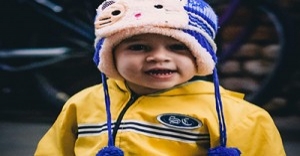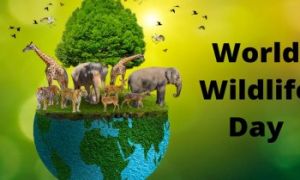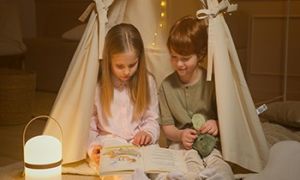

The Early Years Learning Framework (EYLF) is guided by the concepts of "Belonging, Being, and Becoming," which are central to children's learning and development. The following article provides information on Understanding Belonging, Being and Becoming, Examples Of Belonging, Being and Becoming, Implementing Belonging, Being and Becoming and more.
EYLF Learning Outcome 2 focuses on "Children Are Connected With And Contribute To Their World." The following article provides information on Key Learning Goals, Strategies To Support Learning Goals, Activities That Link To EYLF Learning Outcome 2, Lesson Plan Sample For EYLF Outcome 2 and more.
Learning trajectories in early childhood refer to the developmental pathways that children typically follow as they acquire new skills and knowledge. The following article provides information on What Are Learning Trajectories In Early Childhood, Learning Trajectory Domains, How To Use Learning Trajectories In Early Childhood, Using Learning Trajectories In Play Based Activities, Learning Trajectories And The EYLF and more.
EYLF Learning Outcome 1 - Children Have A Strong Sense Of Identity focuses on children developing a strong sense of identity. The following article provides information on Key Learning Goals, Strategies To Support Learning Goals, Activities That Link To EYLF Learning Outcome 1, Lesson Plan Sample For EYLF Outcome 1 and more.
Creating an Early Years Learning Framework (EYLF) curriculum plan involves several key steps to ensure it aligns with the framework’s principles and supports children’s learning and development. The following article provides a step by step guide on writing the EYLF curriculum plan.
The Early Years Learning Framework (EYLF) planning cycle is a structured process that helps educators plan, document, respond to, and support children’s learning. The following article provides information and examples of each of the 5 stages of the EYLF planning cycle.
The Early Years Learning Framework recognizes the inextricable links that belonging, being and becoming have with learning. As part of this recognition, the framework elaborates learning outcomes, principles and practices for educators that will help them meet their professional goals while ensuring personal growth and well-being too. The following article provides definitions of belonging, being and becoming.
The EYLF Learning Outcomes are broad and observable. They acknowledge that children learn in a variety of ways and vary in their capabilities and pace of learning. Children’s learning is ongoing acknowledge that children learn in a variety of ways. The following article provides practical examples of each individual learning outcome that children will progress towards in different and equally meaningful ways.
The EYLF Outcomes Meanings and Examples provide detailed meanings for each of the 5 learning outcomes as well as examples of how each learning outcome can be implemented into practice.
EYLF Outcomes In Action provides examples of how each learning outcome can be demonstrated within the learning environment. These are great to display to show how children and Educators are actively engaging in each learning outcome.
 As an Educator in Australia, your pay rate falls under the Children’s Services Award 2010. This award states the minimum amount that an employer can… Read More
As an Educator in Australia, your pay rate falls under the Children’s Services Award 2010. This award states the minimum amount that an employer can… Read More
 When working as a qualified Early Childhood Teacher (with a university degree) within a service, your rate of pay will come from the Educational Services… Read More
When working as a qualified Early Childhood Teacher (with a university degree) within a service, your rate of pay will come from the Educational Services… Read More
 When working as a Diploma Qualified Educator your pay rate is from the Children's Services Award 2010. This Award states your minimum rate of pay… Read More
When working as a Diploma Qualified Educator your pay rate is from the Children's Services Award 2010. This Award states your minimum rate of pay… Read More
 When working as a Cert 3 Qualified Educator, your pay rate is from the Children's Services Award 2010. This Award states your minimum rate of… Read More
When working as a Cert 3 Qualified Educator, your pay rate is from the Children's Services Award 2010. This Award states your minimum rate of… Read More
 Educational Leaders play a crucial role in their early childhood service by ensuring that the educational program aligns with best practices and supports the holistic… Read More
Educational Leaders play a crucial role in their early childhood service by ensuring that the educational program aligns with best practices and supports the holistic… Read More
 With the new national child safety reforms kicking in on 1 September 2025, early childhood services like yours have a real opportunity to lead the… Read More
With the new national child safety reforms kicking in on 1 September 2025, early childhood services like yours have a real opportunity to lead the… Read More
 In early childhood education and care, ratios are more than a technicality—they are a frontline safeguard. Every child deserves responsive supervision, emotional connection, and developmental… Read More
In early childhood education and care, ratios are more than a technicality—they are a frontline safeguard. Every child deserves responsive supervision, emotional connection, and developmental… Read More
 Here’s a comprehensive Mobile Phone and Smart Watch Policy tailored for early childhood education and care (ECEC) services in Australia, aligned with the latest 2025… Read More
Here’s a comprehensive Mobile Phone and Smart Watch Policy tailored for early childhood education and care (ECEC) services in Australia, aligned with the latest 2025… Read More
 The Sea of Fish Challenge is a national initiative that invites children, educators, families, and communities to create and display fish artworks as a symbol… Read More
The Sea of Fish Challenge is a national initiative that invites children, educators, families, and communities to create and display fish artworks as a symbol… Read More
 Cold weather play is incredibly beneficial for early childhood development! It helps children build resilience, strengthen their immune systems, and develop essential motor skills. Here’s… Read More
Cold weather play is incredibly beneficial for early childhood development! It helps children build resilience, strengthen their immune systems, and develop essential motor skills. Here’s… Read More

On the 3rd of March, wildlife is celebrated worldwide for the UN World Wildlife Day. The following...
See more...
Immunisation of Educators within the early learning centre is an effective way to protect not...
See more...
In a busy early learning room, nestled between a soft rug and a basket of...
See more...© 2009-2025 Aussie Childcare Network Pty Ltd. All Rights Reserved.
